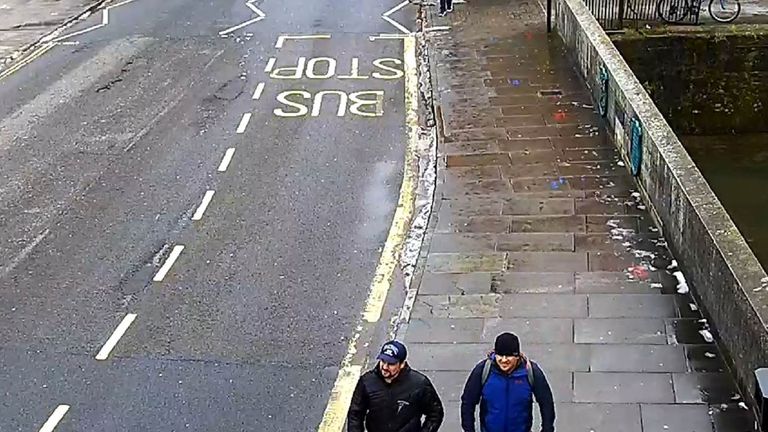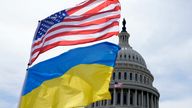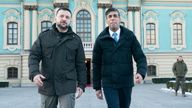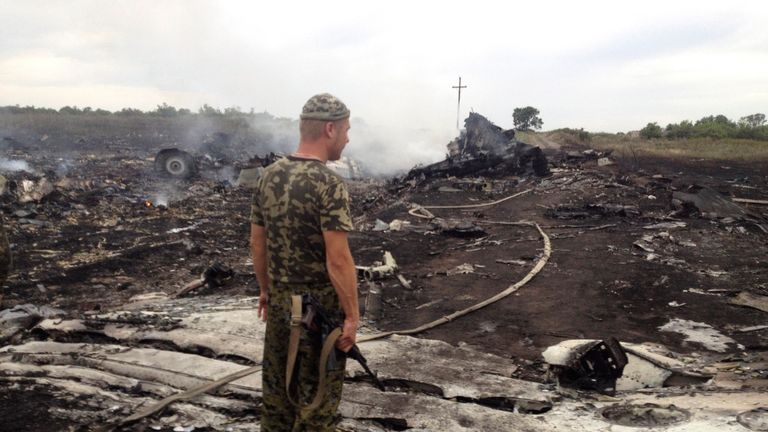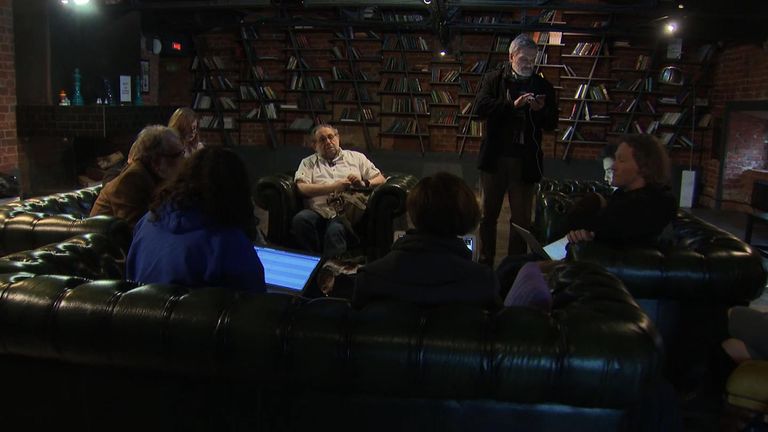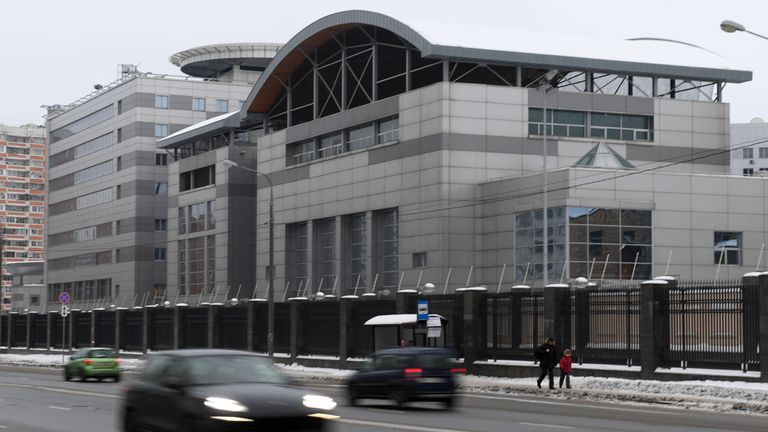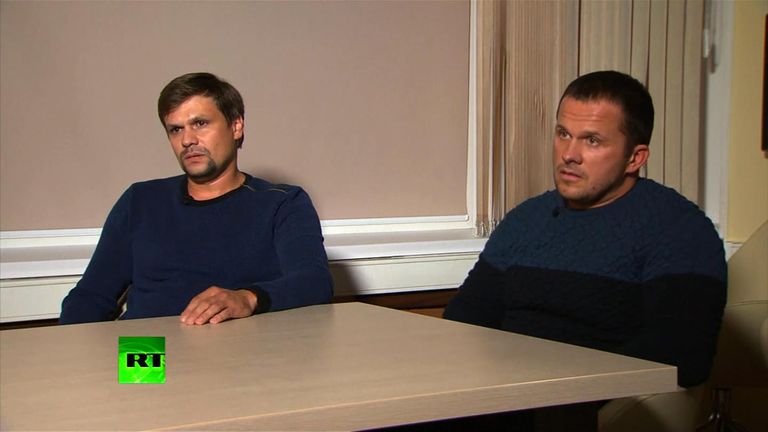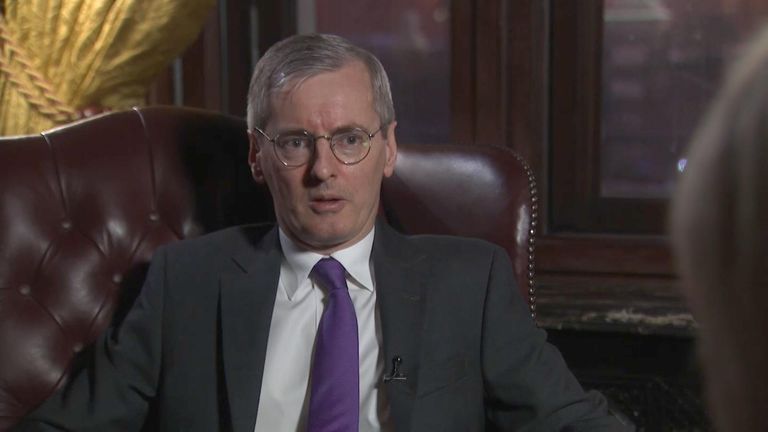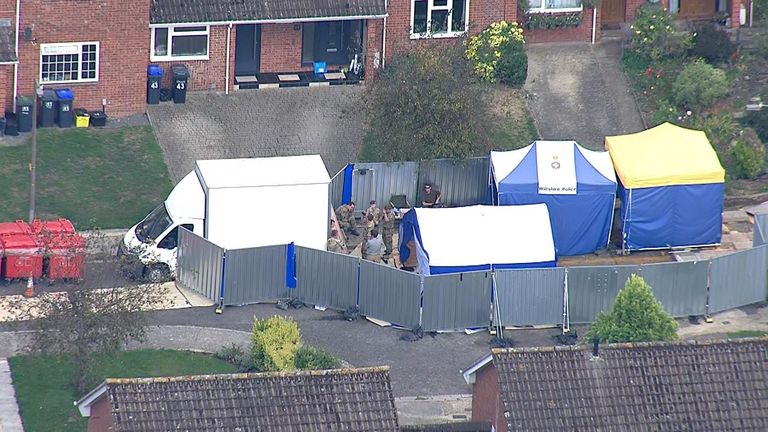Beyond Salisbury: Identifying Russian intelligence operations
It takes guts to expose Russian military intelligence from the centre of Moscow and more GRU operations could come to light.
Monday 4 March 2019 06:33, UK
The investigative journalists at Russian news site The Insider are aiming to uncover more Russian military intelligence operations after identifying the GRU agency officers behind the Salisbury chemical weapon attack.
"We're not very focused on Salisbury. We know this will be covered by British authorities," said Roman Dobrokhotov, The Insider's chief editor.
"They have all the CCTV and from the beginning they knew [the GRU operatives'] real names," he added.
It isn't yet clear whether the UK government will release all that they know. In the meantime The Insider, alongside UK-based investigative organisation Bellingcat, have been filling in the gaps.
They recently revealed the identity of a third GRU operative, Denis Sergeev.
They believe Sergeev called the shots during the Salisbury operation, and may have been involved in at least one other poisoning in Bulgaria.
"What we are interested in is finding other operations of Sergeev or other GRU agents in Europe, trying to piece together their travels with other strange events happening in those countries," he says.
He thinks there are more GRU operations that have yet to come to light.
"The (Russian) authorities actually helped us with our investigation," Mr Dobrokhotov said.
"At first we saw documents of Sergeev on different databases - traffic police and all sorts of other databases, but then suddenly they disappeared. This was another proof for us this person was the right person."
It takes guts to expose Russian military intelligence from the centre of Moscow.
The Insider is a team of just 13 but they are giving the GRU a run for their money - uncovering their trace in the coup in Montenegro, the downing of Malaysian airliner MH17 and most recently in Salisbury, through meticulous cross-referencing of names, databases, and travel itineraries.
Mr Dobrokhotov said that the journalists who work for The Insider "have no real choice" when it comes to avoiding topics that might be considered dangerous, such as uncovering the work of the GRU.
"If we want to be journalists and investigate real important topics in our country, we have to touch these stories of MH17, the Salisbury attack, Russian hackers," he said.
"We just follow the interesting stories and suddenly at the end we always see GRU there - we don't hunt GRU, it just happens like this.
"Because they're super active, it's a new Russian foreign strategy, when they use their military to interfere in politics in other countries, and they are not very good at conspiracy. That's why we always find them."
The Russian government's line on Bellingcat is that it is an arm of the British government, drip-feeding false information to slur Russia's name.
The Insider is never mentioned.
The GRU operatives who are believed to have conducted the chemical weapon attack in Salisbury have gone to ground since their infamous if unconvincing interview on Russian state broadcaster RT.
The constant refrain from Russian officials, if one is identifiable in amongst the chorus of conspiracy, is that nothing they've seen so far constitutes proof.
They argue that if the UK has more convincing evidence (than CCTV of two Russian men making return trips to Salisbury out of love for its cathedral spire whilst leaving traces of novichok in their wake), then it should be made public.
The British ambassador to Russia, Laurie Bristow, told me: "I think the Russian government knows perfectly well what happened in Salisbury. They're using disinformation techniques to obscure what actually happened."
But the British government will not reveal the full picture at this stage, he said, partly because the investigation is ongoing and because of evidence that should one day be tested in court.
"We have put quite a lot of information out to the public but essentially the administration of justice in the UK takes absolute priority here," Mr Bristow said.
"We need to be able to bring those suspects to trial, a fair trial in a court to look at what actually happened and decide whether they were guilty."
That's wishful thinking. Russia won't extradite its citizens for trial in the UK.
The UK sees no reason to offer up further evidence to Russia. That was entirely clear in the days after Salisbury and nothing has changed since.
Which means UK - Russian relations have seen precious little improvement in the year since the Skripal poisoning.
Once the police investigation into Salisbury and Amesbury has wrapped up, the British public has a right to know as much as police are able to tell, whether or not they ever get to see Russia's spire-loving military intelligence officers in the dock.
Until then, Bellingcat and The Insider are all we've got shining light on this chemical weapon attack on British soil.
This leaves us in a hard place.
It is hard to move on after a foreign state uses chemical weapons for attacks on British soil.
It is hard to move on after the apparent carelessness of foreign intelligence agents in a plot to assassinate one of their own ends up killing a British citizen.
It is hard to move on when this has happened before - the last time with a radiological agent, polonium, which left highly radioactive traces across London.
It is hard to move on when the foreign state in question professes to be the injured party, unfairly maligned.
"We need to be realistic. Nothing fundamental has changed in Russia", Mr Bristow told me.
"It's not going to be possible to create a normal relationship with a country that does this kind of thing, but as the prime minister has said a number of times now that's not the relationship that we want."
